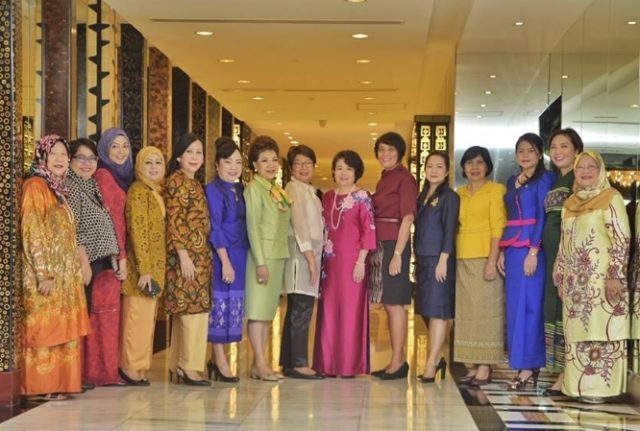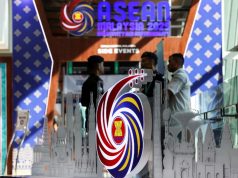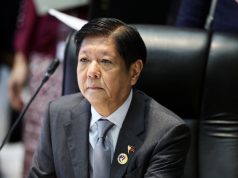MANILA – The Department of Trade and Industry and the ASEAN Women Entrepreneur’s Network (AWEN), are working to launch the 10×10 Initiative, a partnership of 10 corporations and 10 enterprise startups led by women.
The government-owned Malaysian Global Innovation & Creativity Centre, or MaGIC, acceleration program will provide the platform to screen these startups and match their skills and knowledge to corporations facing challenges in the areas of technology and innovation.
According to AWEN co-chair and Philippine Women’s Economic Network chairperson Ma. Aurora Geotina-Garcia, DTI and AWEN are looking to get the ball rolling in the Philippines, and replicate it in the nine other ASEAN member-states, with a focus on women-led businesses.
“Taking the lead in the gender agenda would really be an opportunity for the Philippines to also promote the efforts being made by our country. And more so the impact that this does to the micro, small, and medium enterprises,” said DTI Undersecretary Nora Terrado, during a press conference on Thursday at the Philippine International Convention Center, where the DTI, AWEN, and the Philippine Commission on Women (PCW) were holding the ASEAN Women’s Business Conference.
With over 600 local and international delegates from Southeast Asia, the conference was meant to put forward policies that would enhance women’s participation in business in the ASEAN, Terrado explained.
At the end of the conference, the Manila Statement on Mainstreaming Women’s Economic Empowerment would outline actions to advance women’s economic empowerment through innovation, trade, and human capital development.
“Bottom line, policy will create concrete actions that will impact our stakeholders,” Terrado added.
“Women have economic rights,” added PCW executive director Emmeline Verzosa. They grapple with such issues as work-life balance, unpaid care work, and being minorities in executive posts. Such things were discussed in the conference so that women in business could lift their sisters in the workforce.
The ASEAN Business Advisory Council had appointed AWEN as the vice-chair of the ASEAN Working Group on Women, said Garcia. Thus, female entrepreneurs now have a say in advising the ASEAN economic ministers on women’s economic issues.
“If women are economically empowered and have their own income, they will not be battered, they will not be violated, they will not be trafficked,” Garcia added.
She pointed out that women’s participation in the labor force was still not as high as it should be, when a one-percent increase in labor force participation could increase the Philippines’ GDP by nine percent.
“You can see the power that additional women in the workforce are able to contribute to the economy,” she said.
She also noted that women made up only 13 percent of the boards in publicly listed companies.
“So we have to do something,” she said.
There were those who might say that women in the Philippines didn’t really need empowerment as much as their sisters in other ASEAN countries did.
But, said AWEN chairperson and Philippine Coffee Board head Chit Juan, “[That’s] looking at women in executive positions. We are not looking enough at the unserved or the underserved. So ‘yun ang kailangan nating hilahin paakyat (They are the ones that we have to pull up).”
“The micros are the ones who need help,” she stressed. There were still many micro, small, and medium enterprises that are unbanked or unserved in terms of access to finance.
Entrepreneurs in ASEAN faced the same challenges: Lack of access to market, finance, and technology, she added.
In terms of diversity, Juan remarked, “Would you believe, there are women leaders who say, ‘Ay hindi, hindi dapat ginagawa ‘yan, men at women, basta you prove your worth (You shouldn’t be doing that, having men and women, as long as you prove your worth).’ Kasi nasa taas ka na po, ‘di ba (That’s because you’re already up there, right)? They don’t care because they’re already up there. But it doesn’t come to their minds that companies are proven to be more profitable when a board is diverse.”
Verzosa agreed that there must be a change in mindsets.
“Some women still think that they should be at home or that they are second-class. They should claim their rights,” she said.
Garcia added, “If we are half of the population of this region, we have a voice as to how the economy should be run.”
Women should step forward and make policymakers listen to them because they could make a significant contribution to the economy, she said.
The conference also featured the GREAT (Gender-responsive Economic Actions for the Transformation of Women) Women showcase of products of female entrepreneurs from the ten ASEAN member-states, such as food, toys, jewelry, bags, and clothing.
Leaders of the ASEAN Women Entrepreneur’s Network, including chairperson Chit Juan (8th from left) and co-chair Boots Geotina-Garcia (10th from left). Photograph from the ASEAN Women Entrepreneur’s Network.










